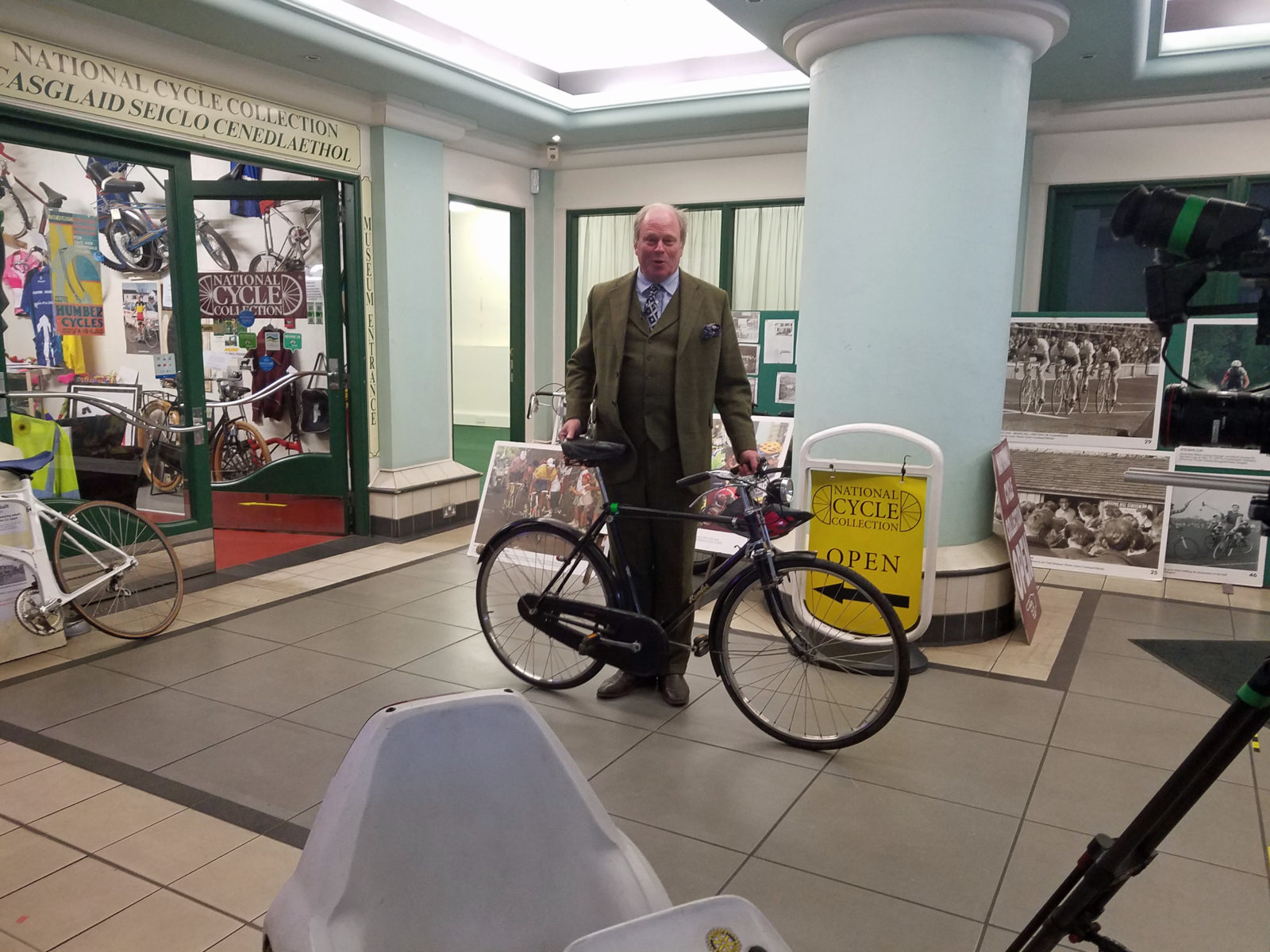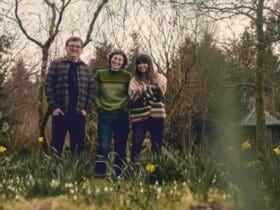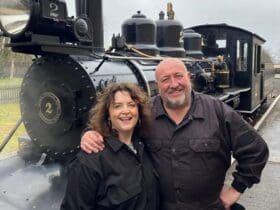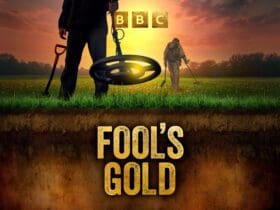The National Cycle Museum in Llandrindod Wells featured on national television on Tuesday as the popular BBC One series Antiques Road Trip screened an episode filmed during a visit to Wales in March.
Antiques expert James Braxton stopped off at the museum to carry out some research on champion cyclist Arthur Linton who was propelled from the coalfields of South Wales to the world stage, winning races in the UK, Europe and America where he set two world records.
Shortly after winning the Bordeaux-Paris race in 1896, Linton died of typhoid fever, at the age of 27.
Braxton interviewed museum volunteer Allan Simcock about Linton, whose lived in Aberaman. Allan also spoke about more modern Welsh cyclists, especially champions Geraint Thomas and Nicole Cooke.
The filming ended with Braxton loaning a cycle for a short spin in Llandrindod Wells town centre. To view the episode on BBC iPlayer go to: bbc.co.uk/iplayer/episode/m001d0w6/antiques-road-trip-series-25-episode-22
Allan explained that many men took up cycle racing as a way of making money in the 1800s, even though road racing for money was banned.
Originally from West Yorkshire, 80-year-old Allan, who lives in Beulah, was a keen cyclist for 65 years and has been made a life member of Condor Road Club in Halifax.
“James Braxton asked a series of questions about Arthur Linton and cycling, and I took him on a tour of part of the museum,” he said. “The filming took about four hours and James wanted to ride a bike so we found him one from the collection to fit him.
“Hopefully, the museum will attract a lot more visitors after being featured on the Antiques Road Trip. Two years ago, I was also interviewed for a radio programme recorded at the museum.”
Located in the Automobile Palace building, the museum is home to more than 250 cycles, representing the historical development of cycling from the early 1800s to the present day.
Open on Mondays and Tuesdays from 10am-4pm and Saturdays 10am-2pm, the museum is seeking extra volunteers to allow it to open on more days.
It costs £20,000 a year to keep open the doors to the museum, which relies on the generosity of supporters and visitors to finance its work.









Leave a Reply
View Comments